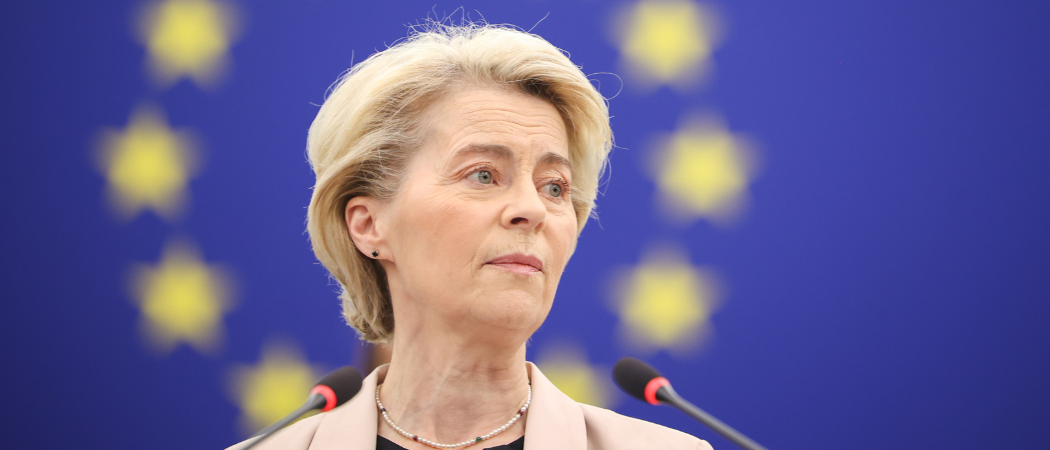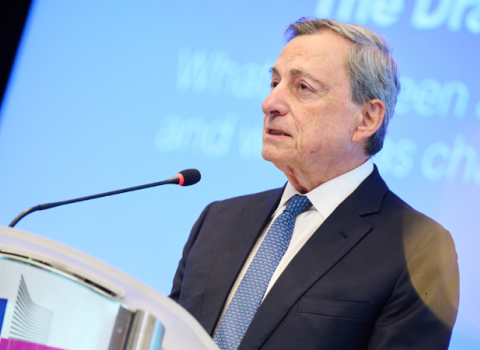The new European Competitiveness Fund would provide a “seamless flow” from research to commercialisation

European Commission president Ursula von der Leyen. Photo credits: Alexis Haulot / European Union
The next Framework Programme for research and innovation is set to remain independent but would still contribute to the European Competitiveness Fund, European Commission president Ursula von der Leyen said during a speech on May 20.
“Our Framework Programme Horizon Europe will stay as a self-standing programme,” von der Leyen said at the annual EU budget conference. She praised the track record of the Framework Programme as an “outstanding brand” and “the most renowned research programme worldwide” but added that it needed to be “tightly connected” to the European Competitiveness Fund.
The fund would “offer support for the investment journey of a project, from an idea to the market, from research to start-up, scale-up and global manufacturing,” Von der Leyen said.
“Horizon Europe has financed groundbreaking research that has won 33 Nobel Prizes over the last 40 years. We want this success story to continue,” she added.
Her comments come after months of uncertainty around the structure of the European Competitiveness Fund, which is expected to pull together EU investments in critical sectors, such as artificial intelligence, space, cleantech, biotechnology and defence.
According to a leaked briefing note presented by Von der Leyen at a preparatory meeting on the EU’s next multiannual budget last week, existing programmes – such as Horizon Europe, Digital Europe, the European Defence Fund and others – are “fragmented and incomplete” and plagued by overlaps, gaps and varied rules that create complexity for users, particularly SMEs.
As a result, the Commission wants to “join and scale up the tools of existing programmes to become a true European Competitiveness Fund, providing coherent support along the investment journey,” the document read.
Von der Leyen echoed this view during her speech: “We need a seamless flow from fundamental research to applied research to start-ups to scale-up.” However, despite saying that Horizon Europe would remain “self-standing” in this new structure, she did not offer further details on how that would be implemented.
Related articles
- Leaked Commission memo lays out plan for European Competitiveness Fund
- Viewpoint: what have the EU's research Framework Programmes actually invented?
This issue of whether the Framework Programme would remain independent has been stirring up the EU research policy community since last year. MEPs and research lobbies have been urging the Commission to maintain FP10, which is set to succeed Horizon Europe in January 2028, as a standalone programme.
But a leaked structure for the Competitiveness Fund added more confusion as it appeared to scatter the research programme’s clusters across five thematic pillars and pair them with other programmes.
Budget negotiations
Von der Leyen’s speech is a political starting point for very difficult negotiations ahead.
The EU’s next long-term budget is due to start in 2028 but, until then, the Commission needs to put forward a written proposal and convince the European Parliament and member states of a complete overhaul of the structure of the EU budget and how it can help breed advanced technologies and innovations.
“Our current budget was designed for a world which no longer exists,” Von der Leyen said. “It is simply impossible to determine today where innovation will lead us by the end of the next budgetary cycle. Our budget of tomorrow will need to respond fast.”





 A unique international forum for public research organisations and companies to connect their external engagement with strategic interests around their R&D system.
A unique international forum for public research organisations and companies to connect their external engagement with strategic interests around their R&D system.